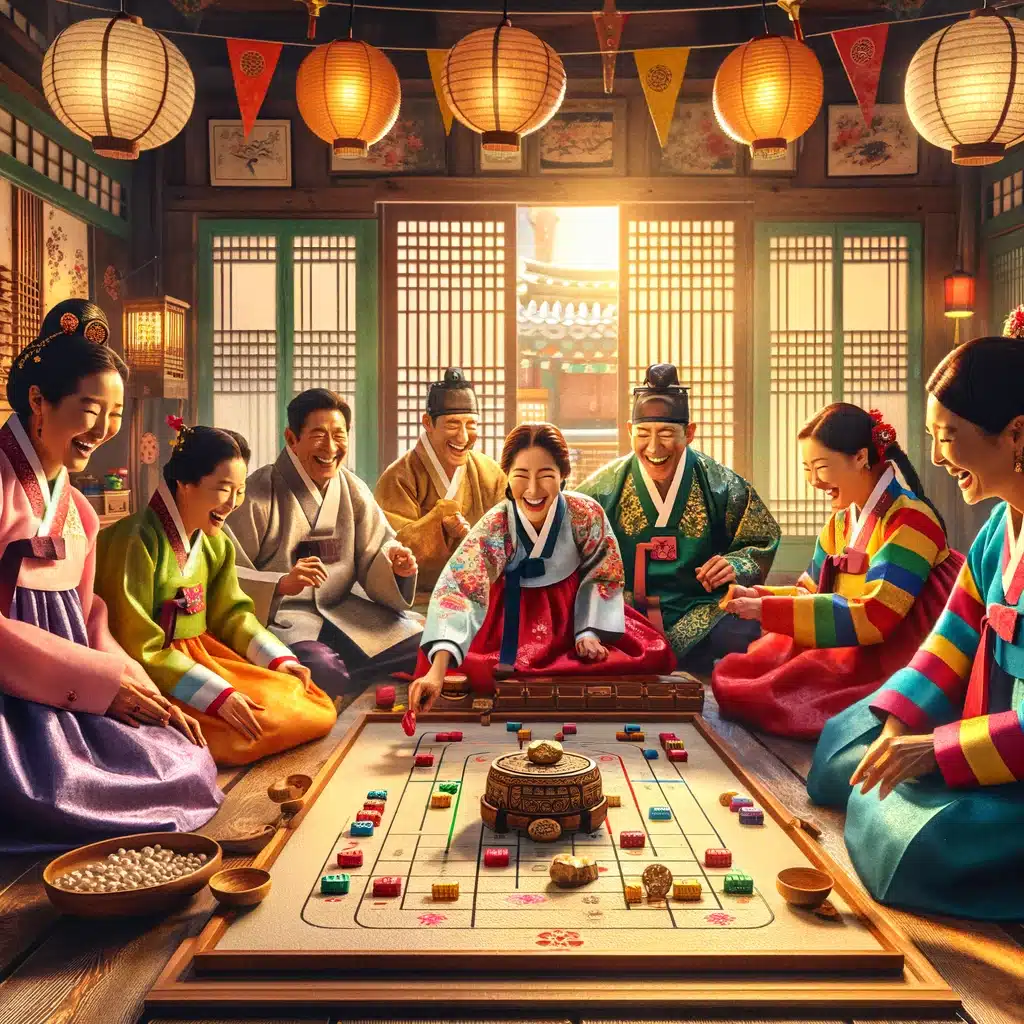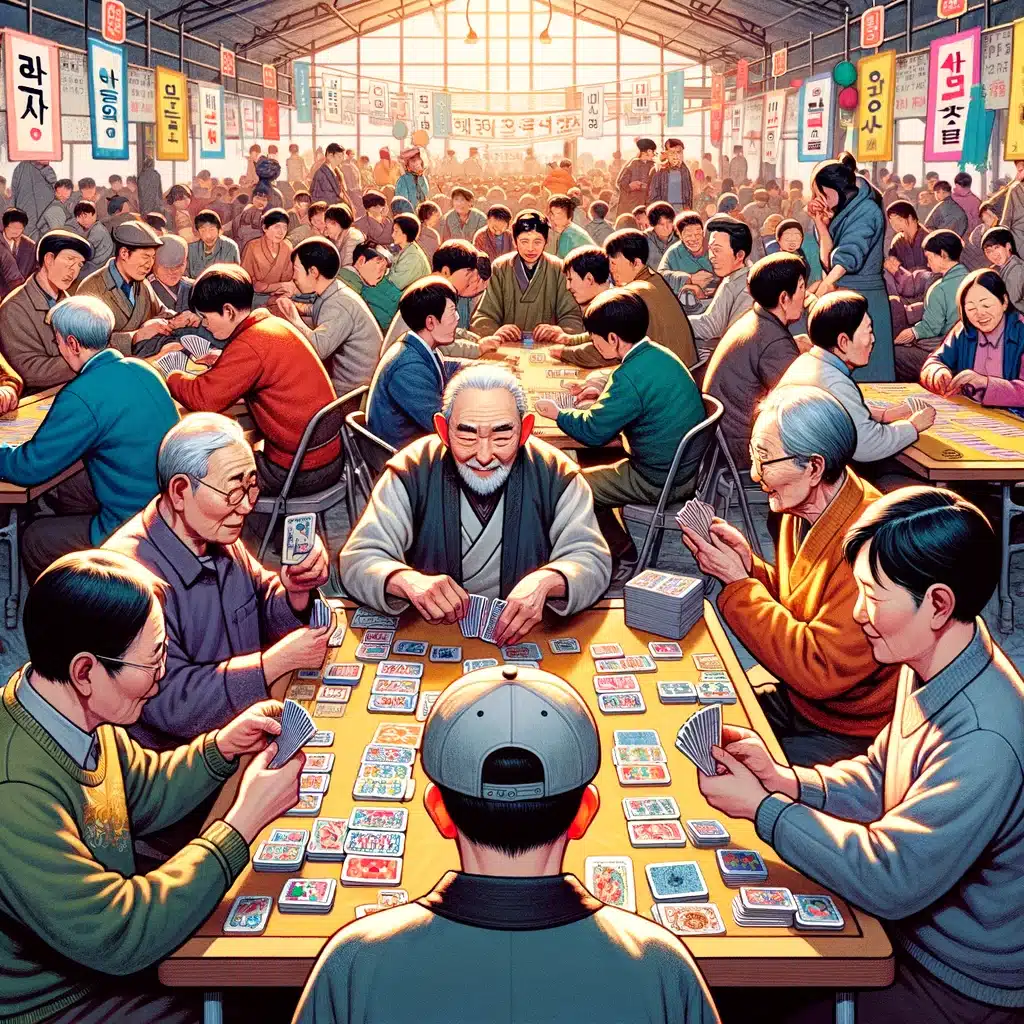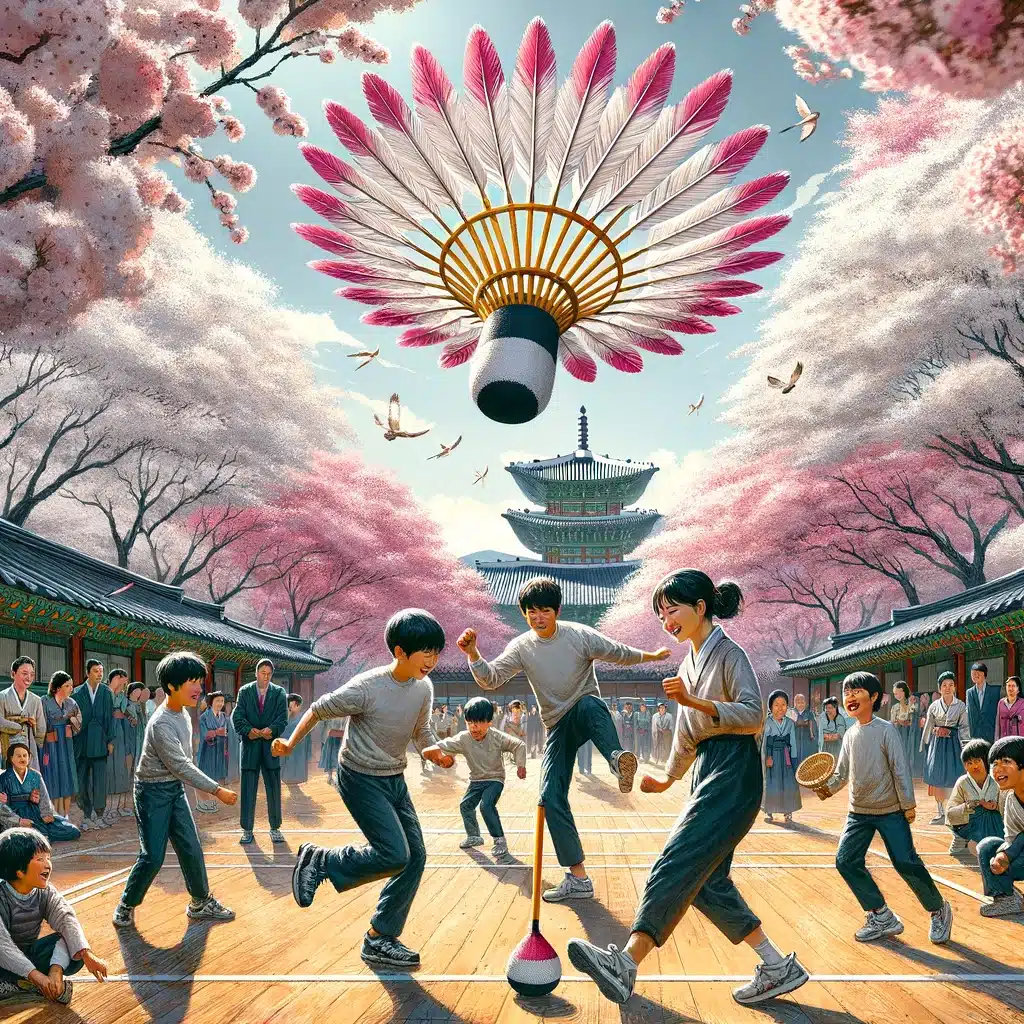Traditional Korean games, with their ancestral charm and playful essence, are enjoying a veritable revival in popularity. These games, which bear witness to Korean history and culture, are reinventing themselves to capture the hearts of younger generations once again. In this article, we delve into the fascinating world of games such as Yutnori, Go-Stop and many others, exploring their evolution and place in Korea’s constantly modernizing society.
Yutnori, a Living Tradition
Yutnori, a board game played during the Lunar New Year, is more than just a pastime; it’s a veritable institution in South Korea. Families get together to throw Yut sticks, creating moments of joy and sharing. Recently, this age-old heritage has adapted to new technologies, offering online versions that appeal to young and old alike.

Go-Stop, between Tradition and Modernity
Go-Stop, a popular card game, is a perfect illustration of the transition from traditional Korean games to the modern age. Initially played with Hanafuda cards imported from Japan, it has evolved to become a symbol of Korean conviviality. Today, mobile applications enable Go-Stop to be played at any time, facilitating its spread and practice among a global audience.

Old Games for New Generations
The renewed interest in traditional Korean games is not limited to Yutnori and Go-Stop. Other games, such as Jegichagi (a kind of Korean footbag), Tuho (a dart-throwing game) and Ssireum (traditional Korean wrestling), are also being revisited. Tournaments and events are organized to promote these playful practices, making them part of a movement of rediscovery and cultural appreciation.

The Cultural Significance of Traditional Games
Beyond their entertainment value, traditional Korean games play a crucial role in preserving the country’s cultural and historical identity. They offer a window onto the past, enabling new generations to connect with their heritage in an interactive and playful way. This playful renaissance is also a response to the quest for authenticity and roots in a rapidly changing society.
A Renaissance through Digital and Events
Digital technology has played a key role in the renaissance of traditional Korean games. Passionate developers have created apps and video games inspired by these traditions, making Yutnori, Go-Stop and other games accessible and appealing to a global audience. These digital platforms have not only made it easier to learn the rules, but have also enabled communities of players to form, transcending geographical and cultural boundaries.
Tournaments and Events : Celebrating Tradition
Tournaments and events dedicated to traditional Korean games are multiplying, offering meeting places and competition. These events attract participants of all ages, from schools to groups of friends, strengthening the community bond around these playful practices. They also serve as a showcase for Korea’s cultural richness, inviting the curious and the passionate to immerse themselves in a world of living traditions.
Educational and Social Impact
Traditional Korean games offer fertile ground for education and social integration. By introducing them into school curricula, children learn the importance of teamwork, strategy and respect for others, while connecting with their cultural heritage. For adults, these games are a means of relaxation and socialization, helping to reduce stress and strengthen community ties.
The Future of Traditional Games in Korea
The future of traditional Korean games looks bright. With growing interest in Korean culture worldwide, these games have the potential to become cultural ambassadors, sharing the values and spirit of Korea far beyond its borders. Their ongoing adaptation to the digital world and their integration into global cultural events guarantee their longevity and evolution in the future.
Conclusion
The renaissance of traditional Korean games is a phenomenon that goes beyond mere nostalgia. It marks a reappropriation and valorization of a cultural heritage, adapted to the challenges and opportunities of the 21st century. By rediscovering these games, South Korea is showing the way for a society that honors its past while embracing the future, inviting the whole world to share its love of play and tradition.
